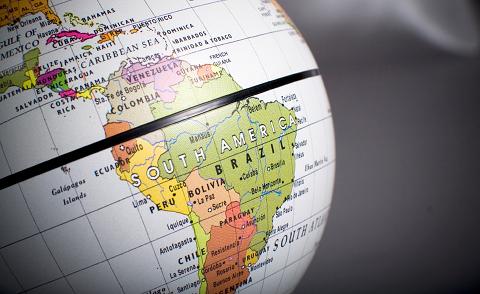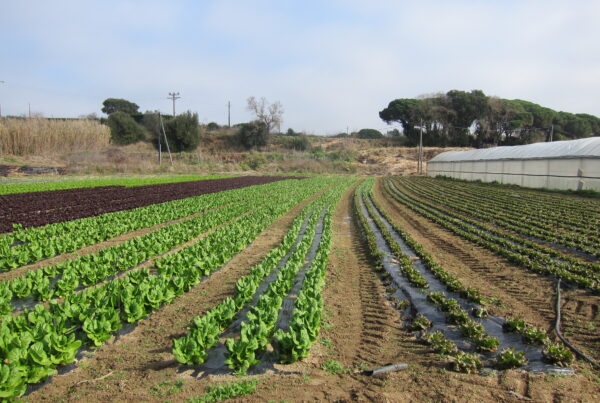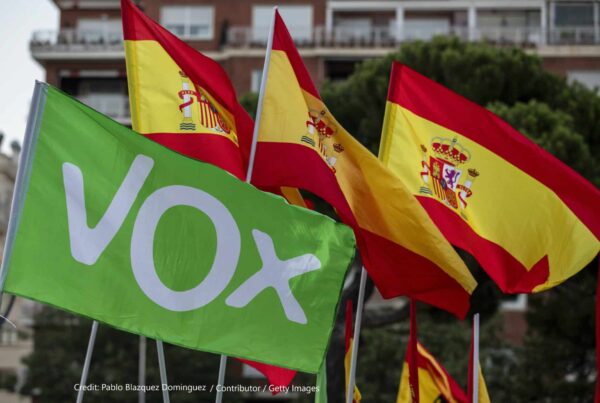By Joan Martínez Alier*
The year 2015 is a year of intellectual triumph for post-extractivism, and Harvey’s apprentices haven’t realised it.

Source: Center for Global Development.
(Para la versión original en español vea abajo.)
Following the commentary of Eduardo Gudynas, on the careless reproduction of concepts from Western scholars to explicate environmental conflict situations in the global South, scholars from CENEDET (Centro Nacional de Estrategia para el Derecho al Territorio) in Ecuador – a center where David Harvey is the director – gave a heated response. Joan Martinez Alier now gives his own opinion on this debate and on the usefulness of “extractivism” and “accumulation by dispossession” concepts for Latin America.
The initial article where Gudynas criticised the concept of “accumulation by dispossession” was, I think, quite short and with limited analysis. It is known that Gudynas does not come from a Marxist tradition. There is much more to say about the current application of the “primitive” or “original” accumulation” concept, as Rosa Luxemburg has already pointed to, and Harvey’s contribution is without doubt an interesting and influential one. In my opinion, this is not sufficiently analysed by Gudynas.
The dependence of metropoles on imports from the peripheries was never as great as it is now. The extraction of materials and the export of materials from South America, for example, grew more then four times from 1970 until 2008. It is obvious that such a rhythm of plundering nature and abusing local populations in extractive borders should not and surely cannot be sustained in the following decades.
Gudynas’ critique is a simplification, but Harvey has not yet bothered to reply. I believe that this may be due to the fact that he does not have much more to say about extractivism – given that he is chiefly a political economist, not a political ecologist. There are no studies of Harvey in Latin America on mining production, palm tree or Eucalyptus plantations, or the extraction of oil or gas.
Harvey, who often spends time in Ecuador, has been silent (to my knowledge) on the Yasuní ITT proposal and never protested for the boycott of such proposal by president Correa already in 2009 (on the occasion of the COP in Copenhagen).
Harvey is not a relevant author for the detailed study of “exctractivism”, unlike Gudynas, Maristella Svampa and Alberto Acosta who are and who have elevated the “post-extractivist” school with a young constellation of South American authors.
Harvey has not criticised politicians like García Linera or Correa, who are extractivists; at least he has not publicly joined the criticism that has been directed to them.
Harvey certainly is not a member of the Latin-American “post-extractivist” school, which is now more powerful than ever, when we see one country after the other in South America falling into negative trade balances. Their exports, very sizeable in material terms, cannot anymore pay for their imports. In 2014, Bolivia exported 28 millions tons of materials, imported 5 millions and is undoubtedly (just like Ecuador, Brazil, Colombia, Peru, Argentina….) already facing a trade deficit.
Harvey is not a relevant author for the Latin-American theory of ecologically unequal trade; a theory that very well fits with the “post-extractivist” critique.
Instead of learning from “post-extractivism” and of responding in person to Gudynas, even if disturbed by his initial commentary, it appears that, for the moment, Harvey has delegated the replica to some of his apprentices. And incredibly so, these apprentices claim that “post-exctractivism” and Gudynas are out of fashion, Caramba. I would say that they are more “in fashion” now than ever, seeing how not only extractivism has caused increased social and environmental disasters, denounced by the “post-extractivists”, but also, having an over-supply of primary exports in the years 2014, 2015, almost all South American countries face deficits in their trade balances despite (or due to) their sizeable exports of copper, iron, carbon, soybean, etc. Both those with nationalist-popular governments and those with neoliberal ones, they all see their extractivist policies failing economically.
The year 2015 is thus a year of intellectual triumph for post-extractivism, and Harvey’s apprentices haven’t realised it.

A mural in the Intag region of Ecuador proclaims local resistance to mining. Photo by Pato Chavez.
Versión original en español:
El artículo inicial de Gudynas criticando el concepto de “acumulación por desposesión” me pareció demasiado breve y poco analítico. Es sabido que Gudynas no procede de una tradición marxista. Hay mucho más que decir sobre la aplicación en la actualidad del concepto de “acumulación primitiva” u “originaria”, como ya empezó a explicarlo Rosa Luxemburgo, y la contribución de Harvey es sin duda interesante e influyente. En mi opinión, Gudynas no la analiza suficientemente.
La dependencia de las metrópolis de las importaciones de las periferias no ha sido nunca tan grande como ahora. Por ejemplo, la extracción de materiales y la exportación de materiales de América del Sur aumentó más de cuatro veces desde 1970 hasta el 2008. Es obvio que en las próximas décadas no debe y seguramente no puede mantenerse un similar ritmo de expolio de la naturaleza ni semejante atropello en las fronteras extractivas contra las poblaciones locales.
Gudynas simplifica en su crítica. Pero Harvey es peor, porque al parecer no se digna contestar. De hecho, yo creo que de momento Harvey no contesta porque él no tiene mucho que decir del extractivismo, él no estudia en detalle tales temas de la ecología política. No hay estudios de Harvey en América latina sobre la producción minera, las plantaciones de palma de aceite o de eucaliptos, sobre la extracción del petróleo o gas.
Harvey, que suele vivir algunas temporadas en Ecuador, ha mantenido silencio (que yo sepa) sobre la propuesta del Yasuní ITT y nunca protestó por el boycott a esta propuesta a cargo del presidente Correa ya desde 2009 (con motivo de la COP en Copenhague).
Harvey no es un autor relevante para el estudio en detalle del “extractivismo”, como sí lo son Gudynas, Maristella Svampa, Alberto Acosta que han levantado esta escuela “post-extractivista” con una joven pléyade de autores sudamericanos.
Harvey no ha criticado a los políticos como García Linera o Correa que son extractivistas, por lo menos no se ha sumado en público a las críticas que se les han hecho.
Harvey ciertamente no es miembro de la escuela latinoamericana “post-extractivista”, que es ahora más potente que nunca, cuando vemos que un país tras otro en Sudamérica cae en balances comerciales negativos. Sus exportaciones, muy cuantiosas en términos materiales, no pueden ya pagar sus importaciones. En 2014, Bolivia exportó 28 millones de toneladas de materiales, importó 5 millones, y sin embargo también Bolivia (como Ecuador, Brasil, Colombia, Perú, Argentina…) está ya con déficit comercial.
Harvey no es un autor relevante para la teoría latinoamericana del comercio ecológicamente desigual, una teoría que combina muy bien con la crítica “post-extractivista”.
En vez de aprender del “post-extractivismo”, y de responder en persona a Gudynas aunque le molestara su escrito inicial, parece que Harvey de momento ha delegado la réplica en unos aprendices. E increíblemente esos aprendices aseguran que el “post-extractivismo” y Gudynas están pasados de moda, Caramba. Yo diría que están más “de moda” que nunca pues el extractivismo no solo ha causado crecientes desastres sociales y ambientales denunciados por los “post-extractivistas” sino que además, al haber una sobre-oferta de exportaciones primarias, en estos años 2014, 2015 los países sudamericanos están casi todos con déficits en el balance comercial a pesar (o a causa) de sus cuantiosas exportaciones de cobre, hierro, carbón, soja, etc. Tanto los que tienen gobiernos nac-pops como neo-libs, todos ven fracasar economicamente las politicas extractivistas.
El año 2015 es pues el año del triunfo intelectual del post-extractivismo, y los aprendices de Harvey no se han enterado.
*Joan Martínez Alier is a Professor at the Dpt. of Economics and Economic History and ICTA researcher, at the Universitat Autonoma de Barcelona. He is a founding member and the past president of the ISEE, member of the scientific committee of the EEA (2000-2008) and member of the advisory board of the TEEB project. He is also the coordinator of the EJOLT project. This piece was republished with the author’s permission from rebelion.org. Translation by Panagiota Kotsila.






One Comment